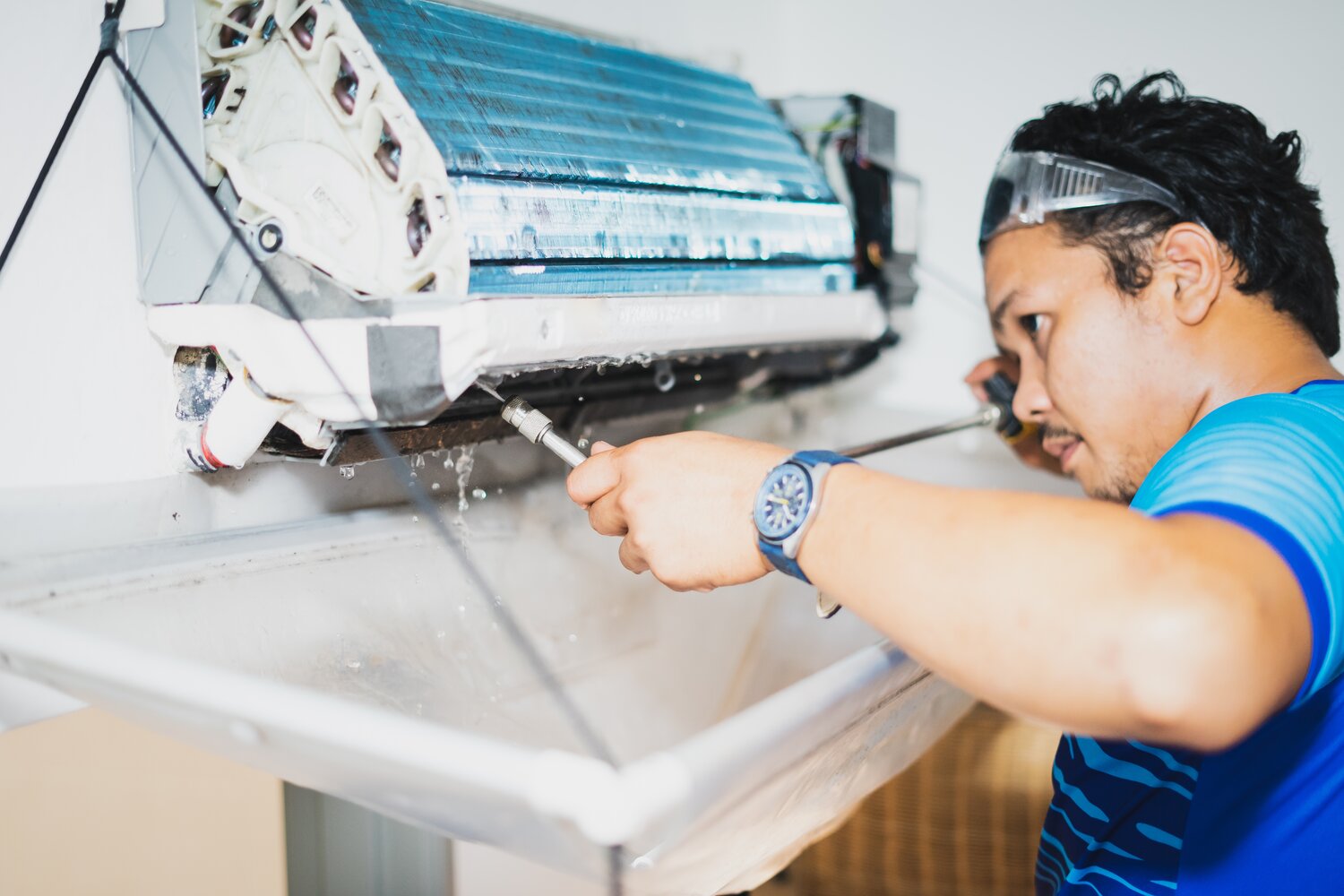Heat pumps are essential components in modern home heating and cooling systems, providing energy-efficient temperature control. Given their role, it becomes crucial to recognize the signs when it’s time for a replacement rather than repairs or service tune-ups. A heat pump that needs frequent repairs or fails to maintain a consistent temperature might be signaling that it’s time to consider a replacement. Our team of professionals is dedicated to ensuring your space remains comfortable year-round, which is why understanding the lifecycle of your heat pump is critical.
We emphasize the importance of proactive maintenance and timely replacement of heat pumps. This not only ensures optimal performance but also keeps your energy costs in check and avoids the inconvenience of unexpected breakdowns. Deciding to replace your heat pump is a significant step, so it’s important to approach it with as much information as possible. We guide our customers through this decision by noting efficiency levels, operational costs, and signs of degradation that indicate a need for replacement.
Identifying Signs Your Heat Pump Needs Replacement
Recognizing when your heat pump requires replacement rather than just another repair or maintenance service is critical for maintaining its efficiency and your home comfort. One clear sign of a failing heat pump is an increase in energy bills without a corresponding increase in usage. This usually indicates that the unit is working harder to provide the same amount of heating or cooling, signaling a significant decrease in efficiency.
Another warning sign is the frequency and cost of repairs. As heat pumps age, you might find yourself calling our technicians more frequently. If your system is more than 10 years old and repair costs are starting to add up to about half the cost of a new unit, replacement is usually a more cost-effective and reliable option. Inconsistent temperatures throughout your home, strange noises, and the inability to maintain a comfortable humidity level are other indicators that your heat pump might be due for a replacement.
Cost-Benefit Analysis of Heat Pump Replacement
Deciding whether to repair or replace a heat pump often comes down to a cost-benefit analysis. Initially, the upfront cost of a new heat pump system can be daunting compared to smaller, immediate repair expenses. However, the long-term savings and benefits frequently justify the initial investment. A new heat pump is significantly more efficient, which can lower your monthly energy bills substantially. Modern heat pumps also come equipped with advanced technology that enhances your home’s comfort and increases the unit’s operational efficiency.
Moreover, replacing an older unit often results in reduced maintenance costs. New heat pumps are less likely to require frequent repairs, and they usually come with a warranty that covers significant parts and labor for several years. Taking these factors into account, our professionals can help analyze the estimated costs of continued repairs against the one-time expense of replacement, aiding you in making an informed decision that aligns with both your comfort and financial needs. This strategic investment not only safeguards your home’s climate control but also increases your property value, should you choose to sell in the future.
Choosing the Right Replacement Heat Pump for Your Home
Selecting the appropriate replacement heat pump is pivotal to ensure long-term comfort and efficiency in your home. When choosing a new heat pump, you should consider several factors including size, efficiency ratings, and the specific heating and cooling needs of your household. The right size of a heat pump is crucial; an oversized or undersized unit can lead to inefficiency, increased wear on the system, and inconsistent temperatures.
We assess your home’s layout, insulation levels, window placement, and even geographical location to determine the optimal heat pump that fits your unique requirements. Moreover, looking at the Seasonal Energy Efficiency Ratio (SEER) and Heating Seasonal Performance Factor (HSPF) ratings helps gauge how much energy the heat pump will use, potentially saving you significant amounts on energy bills in the long run. Our professionals are adept at guiding you through the latest models and features, ensuring you get a modern, energy-efficient system tailored to your home.
What to Expect During the Heat Pump Replacement Process
Understanding what the replacement process involves can help you prepare for a smooth transition to your new heat pump. Initially, our team conducts a thorough assessment of your current system and discusses the installation plan that minimizes disruption in your daily activities. On the day of installation, our skilled technicians will efficiently remove your old unit and ensure that the new heat pump is installed correctly, abiding by all industry standards and local regulations.
Expect some mild noise and activity during the removal of the old unit and installation of the new one. We strive to manage the process quickly and efficiently, ensuring everything is up and running on the same day when possible. After installation, our team will test the system to confirm everything is functioning optimally and provide you with a brief tutorial on how to operate your new heat pump. We also discuss maintenance tips to prolong the lifespan and enhance the efficiency of your heat pump.
Conclusion
As specialists in heat pump systems, we understand the importance of a reliable and efficient heating and cooling solution. If you’re considering replacing your heat pump and need professional advice tailored to your specific needs, don’t hesitate to contact us at Custom Air Conditioning & Air Quality, LLC. From selecting the right model to the installation and maintenance, our dedicated team is here to ensure you experience comfort in your home year-round with minimal energy costs. Call our HVAC contractor in Zephyrhills, FL today for an expert consultation and an unmatched service experience tailored just for you.




